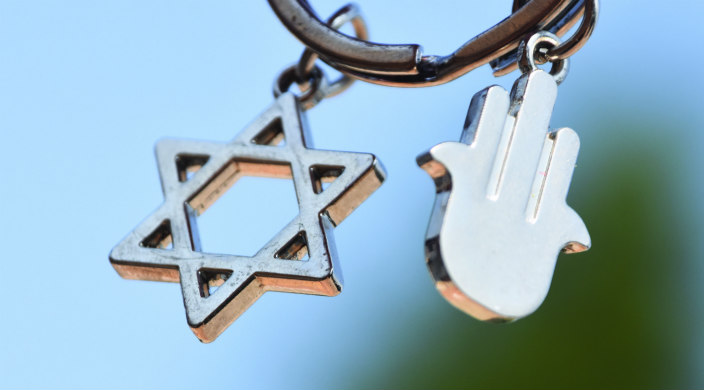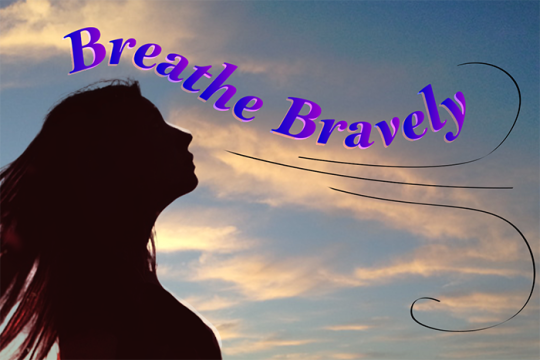
By now the English word “quarantine” has unfortunately spiked the usage charts across the media. From Italian, meaning “40 days,” the word is scary in an impersonal, aseptic way.
Compare it to the modern Hebrew word for the same response to an infectious disease, biddud, from the three-letter root that can means “being alone.” The word biddud perhaps carries more psychological fear of being isolated during this health crisis.
Whatever the word, we are fortunate to live in a time when connectedness can be achieved across time and space – and that’s what will get us through.
When my office closed to serve the greater good (that is, to help prevent the spread of COVID-19 to the most vulnerable), I became temporarily detached from the Hebrew poetry books in my office library. In response to this biddud, I’ve reconnected with what’s available online in order to make connections for and with others.
Poetry International Archives, an amazing resource for poetry from around the world, includes a diversity of voices in modern Israeli poetry, carefully selecting from older (and perhaps more familiar) poets as well as from newer voices.
I’ve highlighted some poets and poems that speak to me for the moment we are in, but I encourage you, too, to poke around on your own from among the Israeli writers there and find what resonates with you.
"A Poem for the Prisoners" by Almog Behar
In this poem, Behar writes existentially about how we are all, in a sense, prisoners. A conversation between the poet and his father, it opens with the father not understanding the existential angst his son wants to share:
I wrote a poem for the prisoners and showed it to my father.
Said he: What good will poems do the prisoners, and who are we
To doubt the justice of the jailor, judge and lawmaker?
Said I: The prisoners of whom I write are us.
"Take This Poem and Copy It" by Almog Behar
In this second Behar poem, the unbreaking form of sentence after sentence highlights the message that to be alive means to co-create with others. The poem begins with someone who received a poem from someone else and tries to make it their own:
Take this poem and copy it in your handwriting on a piece of paper and insert words from your soul between the words your hands copied.
As this new poem travels out to others, it holds up the writing of poetry as a metaphor for how much we are indebted to others for all that we do:
Take this poem and make it yours and sign your name on it and erase the previous name but remember it and remember that every word is poetry is the offspring of poetry and poetry is the poetry of many not one. And someone after you will take your poem and make it his and command those after him the children of poets take this poem and copy it on a piece of paper and make it yours in your handwriting.
Find more poems from Almog Behar.
“Anatomy” by Adi Keissar
Adi Keissar, like Almog, is a living Israeli Jewish poet whose voice amplifies the experience of having a mizrachi (Middle Eastern) background withing Israeli culture and activism.
This poem seems particularly relevant to these days of distancing because, as the poem opens, we might mistakenly think that providing virtual emotional support might be enough:
Everyone always speaks of the heart.
But what about the kidneys?
Don’t they know how to love?
And the liver?
Didn’t all the chocolate words
that were spoken to us melt in it?
Find more poems from Adi Keissar.
“Cast Me Not Away” by Zelda
My last recommendations for now – though I could share dozens more! – come from a poet from an earlier generation, known only by her first name, Zelda. Like Behar and Keissar, she was an outsider but in different ways: a woman in a literary world dominated by men and an independent woman within the religious community.
This poem evokes High Holiday questions that, in some form or another, have been moved up in the calendar. As we’re forced to spend more time at home, we too might be reacting to little things in bigger ways:
And when I wake from my dream,
surrounded by darkness, the old furniture making
its thin creaking sounds –
Do not hide Your face from me.
I take some comfort that Zelda understands that we are seeking ultimate answers right now. This is a poem I would want to read and discuss with others, to build resiliency as we share seek to avoid feeling abandoned and isolated.
“Light a Candle” by Zelda
In a nuanced way, Zelda’s poetry is known for exploring how Jewish ritual intersects with our most difficult soul-searching.
This well-known poem about Shabbat engages us in a conversation about the effectiveness of the day of rest when everything is raging around us:
Softly the Sabbath has plucked
the sinking sun.
Slowly the Sabbath descends,
the rose of heaven in her hand.
How can the Sabbath
plant a huge and shining flower
in a blind and narrow heart?
How can the Sabbath
plant the bud of angels
in a heart of raving flesh?
She ends by encouraging us not to give up on Shabbat – and indeed, all the virtual Shabbat services being offered by congregations now are an indication that many of us believe Zelda’s closing words:
Light a candle!
Drink wine!
Slowly the Sabbath descends
and in her hand the flower,
and in her hand
the sinking sun.
If you explore these poems or others on the website, please share your reactions in the comments below so that we may create yet another place to support and learn from each other during this unprecedented and challenging reality.
Want to learn and read more about Reform Jewish views on Israel? Subscribe to Israel Connections, our Wednesday email (part of the Ten Minutes of Torah series).
Related Posts

Breathe Bravely

Staying Connected with Our Loved Ones Even When we Disagree


